The Jewishness of Handel’s Messiah
A look at the interesting link between Israel’s holiest holidays and this world-renowned oratorio.
My wife and I traveled to Great Britain in 2008. One of the highlights of our trip was our visit to London’s Westminster Abbey, which is described as “the parish church of the world.” Well-known for its burials and memorials, Westminster Abbey houses in its Poets’ Corner the burial place of the honored Baroque composer George Frederic Handel.
Handel made his career debut with the opera Almira in 1705. He became a successful composer—famous for his operas, oratorios, anthems, and organ concertos. But in 1741, at age 56, he grew miserably discouraged as competition from other opera companies increased and drove him into financial disaster. Harassed by poor health, such as rheumatism and a form of blindness, his prospects looked bleak.
Then he received a letter. It contained a libretto based on the life of Christ. A libretto is a text containing lyrics for a musical work, such as an opera or an oratorio. The words stirred Handel’s spirit. Coupled with his own reading of Scripture, he composed his dramatic oratorio called Messiah.
An oratorio is a large-scale musical composition for orchestra, choir, and soloists and is generally designed to educate people in the Bible. The word oratorio actually means “oratory or teaching by music.” Since Bibles were expensive, composers set the truths of Scripture to music for people to hear, sing, and learn.
At the premiere of Messiah, a friend called it a beautiful piece of entertainment. Handel replied, “Entertainment? It was written for education!” He recognized that God had given him his talent, and he desired to use it to teach God’s Word. So no one misunderstood his commitment, he only accepted donations for performances of Messiah; he never charged a fee.
The Messiah’s Jewish connection is undeniable. The rabbis have a saying, “Coincidence is not a kosher word.” No Hebrew word for coincidence even exists because everything falls within God’s plan. People often associate Handel’s Messiah with Christmas and Easter. But Handel composed the work in the fall, near the three Jewish High Holy Days, and used themes associated with them. Furthermore, the oratorio is filled with passages from the Hebrew Scriptures.
Feast of Trumpets
According to historians, Handel began to compose on August 22, 1741, and worked on Messiah nonstop for 24 days, finishing it on September 14. He completed the first movement concerning Jesus’ birth on August 28, near the onset of the Jewish High Holy Days that begin with the Feast of Trumpets, or Rosh Hashanah, the Jewish New Year.
The Feast of Trumpets’ main feature is the blowing of the shofar (ram’s horn) or trumpet to “raise a noise.” The holiday’s Messianic significance involves the Messiah’s return to judge the earth (Zeph. 1:14–16) and establish the New Covenant He made with Israel (Jer. 31:31–33).
In this first movement, Handel focused on the idea of making a “joyful noise.” The oratorio opens with a male tenor solo singing the words of Isaiah 40:1–3 (KJV):
Comfort ye, comfort ye my people, saith your God. Speak ye comfortably to Jerusalem, and cry unto her, that her warfare is accomplished, that her iniquity is pardoned: for she hath received of the Lord’s hand double for all her sins. The voice of him that crieth in the wilderness, Prepare ye the way of the Lord, make straight in the desert a highway for our God.
Then a female alto voice sings the prophecy of the virgin birth: “Behold, a virgin shall conceive and bear a son, and shall call His name Emmanuel, God with us” (cf. Isa. 7:14; Mt. 1:23). The entire choir follows, singing the joyful noise of Christmas: “For unto us a child is born, unto us a son is given: and the government shall be upon his shoulder: and his name shall be called Wonderful, Counsellor, The mighty God, The Everlasting Father, The Prince of Peace” (Isa. 9:6, KJV).
Other themes include the appearance of the angels to the shepherds (Lk. 2:8–15) and Christ’s miracles on Earth, such as bringing sight to the blind (Isa. 35:5–6). The section closes with an adaptation of Matthew 11:28–29: “Come unto Him, all ye that labour, come unto Him that are heavy laden, and He will give you rest. Take his yoke upon you, and learn of Him, for He is meek and lowly of heart, and ye shall find rest unto your souls.”
Yom Kippur
Handel completed the second movement—the longest scene of the oratorio—in nine days. It covers the Messiah’s suffering, burial, resurrection, and ascension and features the majestic “Hallelujah Chorus.”
Yom Kippur, the Day of Atonement, has always been a solemn observance. In biblical times, it was when the high priest entered the Holy of Holies alone, with the blood of atonement for the people of Israel (Lev. 16:17). The blood foreshadowed the final sacrifice of Jesus—the Messiah and great High Priest. Jesus shed His blood on the cross, atoning for mankind’s sin and making eternal redemption possible for all who believe in Him (Heb. 9:12).
The movement begins with solemn alto voices singing, “Behold the Lamb of God, that taketh away the sin of the world!” (cf. Jn. 1:29, KJV). Selected portions from Isaiah 53 follow:
He was despised and rejected of men, a man of sorrows and acquainted with grief….Surely He hath borne our griefs, and carried our sorrows! He was wounded for our transgressions, He was bruised for our iniquities; the chastisement of our peace was upon Him. And with His stripes we are healed. All we like sheep have gone astray (cf. Isa. 53:3–6, KJV).
The movement then describes Jesus’ death and resurrection: “He was cut off out of the land of the living” (Isa. 53:8, KJV). “But Thou didst not leave His soul in hell; nor didst Thou suffer Thy Holy One to see corruption” (cf. Ps. 16:10).
The closing involves four truths: the ascension (Ps. 24), the preaching of the gospel (Ps. 19:4; Isa. 52:7), the rejection of the gospel (Ps. 2:1–4), and God’s power against His enemies (v. 9).
At Messiah’s London premier on March 23, 1743, it is said that King George II stood during the “Hallelujah Chorus,” which compelled everyone to stand. Some viewed his action as an indication he recognized Christ as King of kings. Since then, audiences customarily stand during the chorus.
Feast of Tabernacles
Handel completed the third and final movement of Messiah in less than one week, on September 14, 1741, midway between Rosh Hashanah and Yom Kippur. Five days after Yom Kippur is the beginning of the Feast of Tabernacles. This movement focuses on the apostle Paul’s teaching and Jesus’ glorification in heaven. It opens with “I know that my Redeemer liveth” (Job 19:25, KJV).
Other lines include, “Behold, I tell you a mystery;…we shall all be changed in a moment” (cf. 1 Cor. 15:51); “O death, where is thy sting?…but thanks be to God” (vv. 55, 57, KJV); and “If God be for us, who can be against us?” (Rom. 8:31, KJV). Using Romans 8:31, 33–34, the movement also assures believers of their salvation through Jesus Christ.
In contrast to the tempo of the “Hallelujah Chorus,” the oratorio closes with a largo—a slow, solemn tempo. With full orchestra and choir, the magnificent work ends with a grand acknowledgment: “Worthy is the Lamb that was slain and hath redeemed us to God by His blood, to receive power, and riches, and wisdom, and strength, and honour, and glory, and blessing” (cf. Rev. 5:12).
Handel’s Messiah has impacted countless people around the world. Among them was the great hymn writer Charles Wesley, who with his brother John, started the Methodist movement. Wesley befriended Handel during Handel’s last days and, perhaps inspired by Handel, composed two popular Christmas hymns: “Lo He Comes With Clouds Descending” and “Hark! The Herald Angels Sing.”
Handel died on April 14, 1759, at age 74. He was buried in the south transept of Westminster Abbey. More than 3,000 people attended his funeral.
One would expect his epitaph to exalt him. After all, Handel composed one of the most popular sacred oratorios in history. Instead, the monument shows Handel holding a manuscript. Inscribed on it are the opening words of the third movement of Messiah: “I know that my Redeemer liveth.” They testify to Handel’s hope and the confident expectation of all who have trusted in Messiah Jesus.
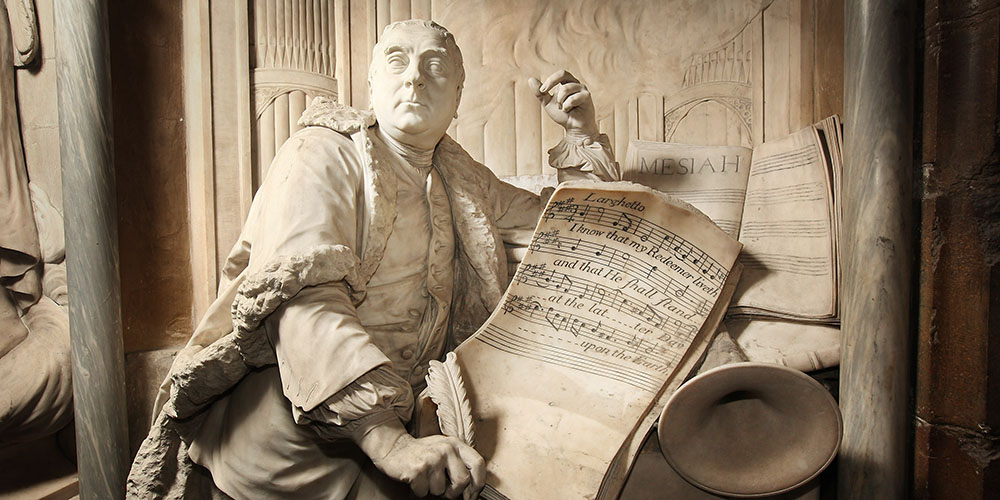


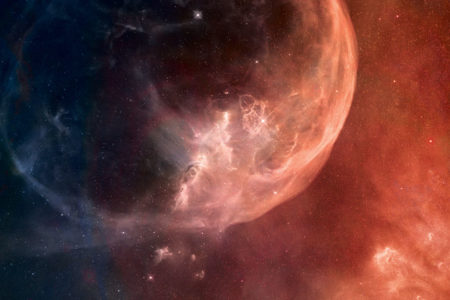
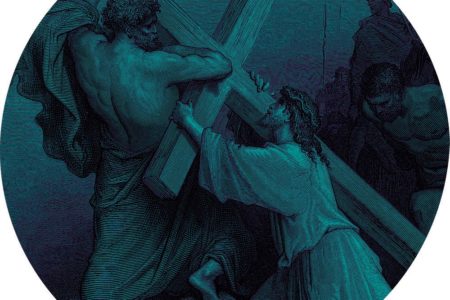
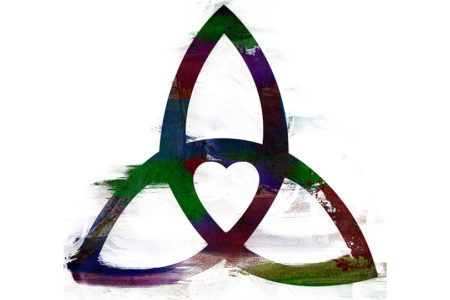
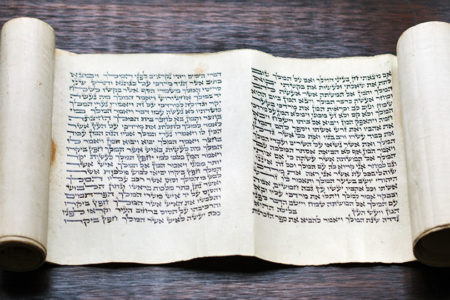

Thank you for this informational article! As we enter the season of these feasts, I will be encouraged to share the beautiful message of the Gospel. How vital it is that true believers DECLARE the glory of the Lord in this troubled, ,messed up world of corruption! Praise God, I know “my REDEEMER lives” and am assured I will stand with HIM.
I shared it on my FB group to pass on your beautiful message of the Word of God. May this 2016 article continue to bless many this year and shine the bright LIGHT of JESUS in this horrible dark world of hate, division, and ultimate corruption. God bless you.
The magnificent “Messiah,” in Word and music. It is my favorite holiday celebration in song. Not only does it stir my soul but gives a wonderful rest, as well. Thank you for this article as we look forward to this year’s holiday presentation…………………..I love it.